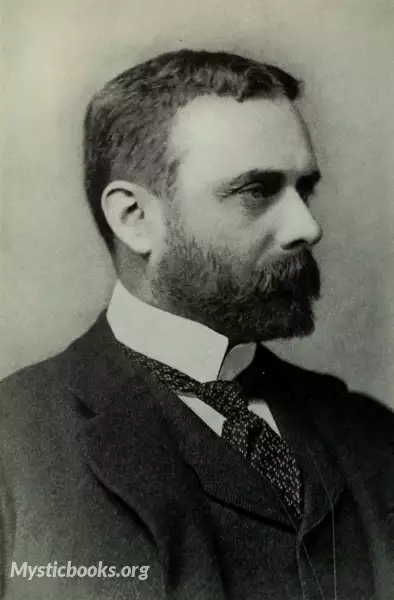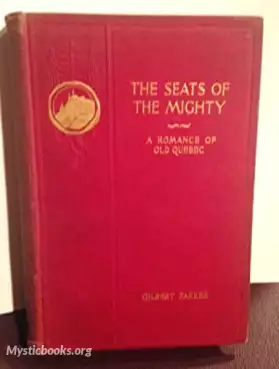
Timeline
Title
Country/Nationality
Gilbert Parker
Sir Horatio Gilbert George Parker, 1st Baronet PC known as Gilbert Parker, Canadian novelist and British politician, was born at Camden East, Addington, Ontario, the son of Captain J. Parker, R.A.
He was educated as a teacher in Ottawa and taught at Marsh Hill and Bayside schools in Hastings County before becoming a teacher at the Ontario Institute for the Deaf and Dumb (in Belleville, Ontario) in 1882. From there he went on to lecture at Trinity College. In 1886, he went to Australia, and for a while became associate editor of the Sydney Morning Herald. He also traveled extensively in the Pacific, Europe, Asia, Egypt, the South Sea Islands and subsequently in northern Canada. In the early nineties he began to gain a growing reputation in London as a writer of romantic fiction.
The best of his novels are those in which he first took for his subject the history and life of the French Canadians; and his permanent literary reputation rests on the fine quality, descriptive and dramatic, of his Canadian stories. Pierre and his People (1892) was followed by Mrs. Falchion (1893), The Trail of the Sword (1894), When Valmond came to Pontiac (1895), An Adventurer of Icy North (1895), and The Seats of the Mighty (1896, dramatized in 1897). The Seats of the Mighty was a historical novel depicting the English conquest of Quebec with James Wolfe and the Marquis de Montcalm as two of the characters. The Lane that Had No Turning (1900), a collection of short stories set in the fictional Quebec town of Pontiac, contains some of his best work, and is viewed by some as being in the tradition of such Gothic classics as Stoker's Dracula and James's The Turn of the Screw. In The Battle of the Strong (1898) he broke new ground, laying his scene in the Channel Islands. His chief later books were The Right of Way (1901), Donovan Pasha (1902), The Ladder of Swords (1904), The Weavers (1907), Northern Lights (1909), The Judgment House (1913), The Promised Land: A Story of David in Israel (1920), and The Power And The Glory (1925). Parker had three that made it into the top 10 on the annual list of bestselling novels in the United States, two of which were on it for two years in a row. The 1905 New International Encyclopaedia claimed that it was the "dramatic quality of his books [which] won for them [their] considerable popularity, despite their disregard of truth in local color."
Sir Gilbert Parker is also known for his poetry, in particular the sonnet Reunited. The English composer Sir Edward Elgar set to music three of Parker's romantic poems: Oh, soft was the song, Twilight, Was it some Golden Star? in 1910, as part of an uncompleted song-cycle, his Op. 59. Elgar also set to music his little poem Inside the Bar, written in 1917 as a sequel to his setting of Kipling's wartime nautical poems in The Fringes of the Fleet.
Parker continued his propaganda efforts up until the year the United States entered the war, 1917. At the beginning of 1917, he visited the United States to meet with Americans he had been corresponding with. On 3 February 1917, President Woodrow Wilson made a speech during Parker's visit that severed diplomatic ties with Germany. The U.S. had almost declared war and Parker believed that he had fulfilled his responsibilities. Later that same day, he resigned from his position at Wellington House, due to, he said, his failing health.
All of Wellington House’s activities were kept in complete secrecy. This increased the credibility of their publications, because they could not be traced back to any official sources. Parker’s letters concealed their connection and origin with the British government, and his American contacts never realized they were being manipulated. Today his influence on the First World War and America’s entry into it is often overlooked, even by seemingly comprehensive propaganda analysis.
Books by Gilbert Parker

The Seats of The Mighty
The Seats of the Mighty is a novel published in 1896 by Gilbert Parker. It was first published in serial form in The Atlantic starting in March 1895, and released in book form in 1896. It was the third highest best-selling book in the United States i...

Right of Way
Right of Way is a gripping tale that delves into the complexities of human nature and the power of redemption. Charley Steele, a successful but disillusioned lawyer, finds himself lost in a world of alcohol and doubt. When he loses his memory and stu...

Lane that had no Turning, and Other Tales concerning the People of Pontiac
Gilbert Parker's "The Lane that had no Turning, and Other Tales concerning the People of Pontiac" is a collection of short stories set in the fictional town of Pontiac, Quebec. The stories explore the lives and loves of the townspeople, often with a...

Lover's Diary
Gilbert Parker's "Lover's Diary" is a collection of 83 sonnets, penned early in his career, that delve into the depths of romantic love. Parker's words, infused with passion and longing, paint vivid portraits of the joys and anxieties that accompany...